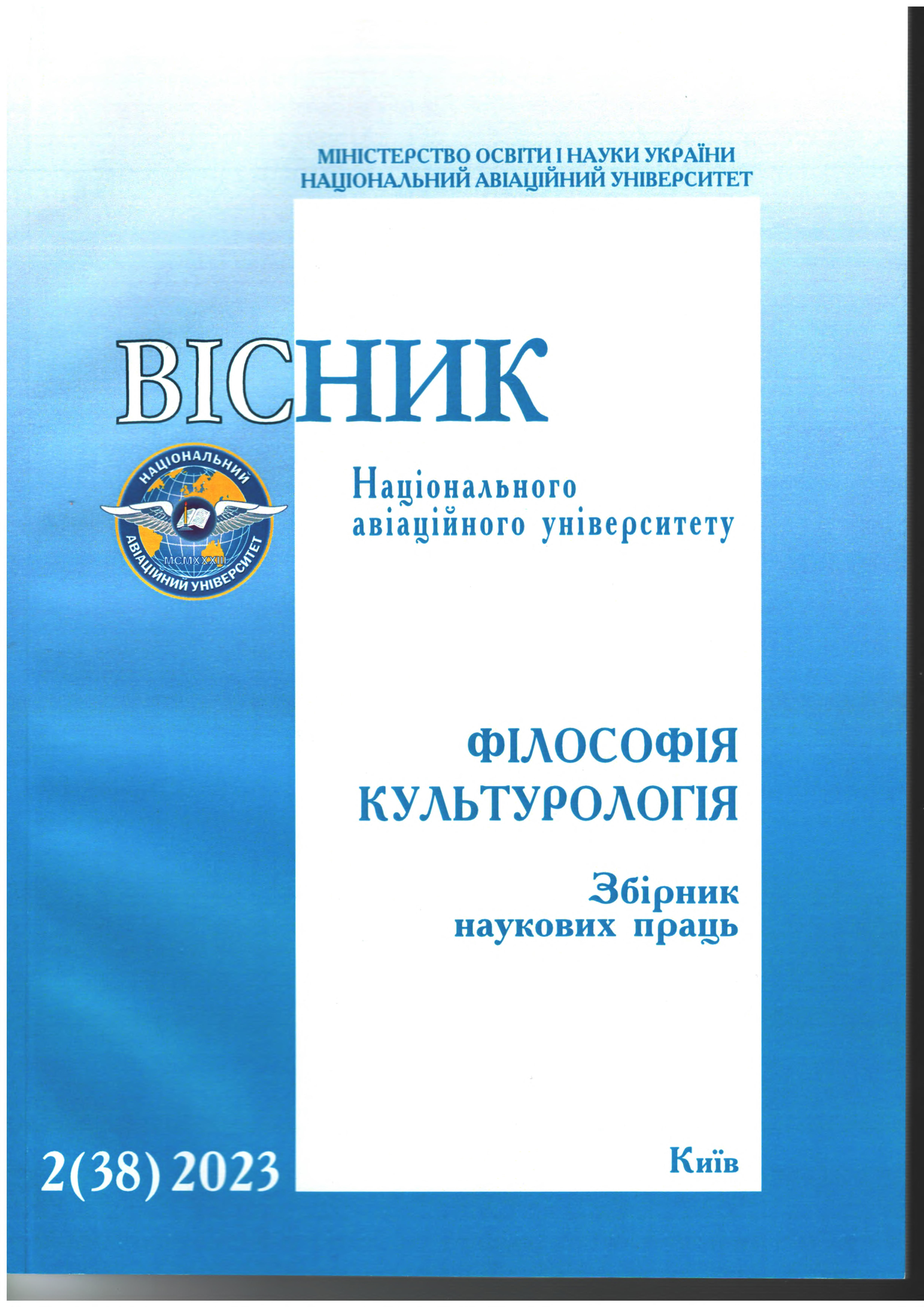LANGUAGE ASPECT OF SOCIAL DISCOURSE IN THE INFORMATION ERA
DOI:
https://doi.org/10.18372/2412-2157.2.18123Keywords:
discourse, social discourse, communication, language, information technologies, Information AgeAbstract
Introduction In the new paradigmatic setting, researchers across socio-humanitarian sciences and philosophy have centered their
studies on discourse. As communication grows in importance in modern society, the term "discourse" is being increasingly used in
social practices as well as in science. This highlights the need to study the language features of discourse as a sociocultural
phenomenon in the information age, which must be conducted according to new norms and rules. The aim and tasks are the
identification of language features of social discourse at the current stage of informatization. Research methods for studying
discourse include sociocultural and systems approaches, as well as the principles of historicism and complementarity. The
theoretical and methodological basis of this study are the works of J. Habermas, D. Böhler, and A. Yermolenko. Research results.
In the 1970s, a new communication paradigm emerged. Over time, this led to a focus on dialogue, discourse, language, speech, and
communication in new sociocultural realities within the Ukrainian philosophical tradition. This new approach suggests that it is
possible to create a classification of discourses that considers the specificities of social practices. Before any social practice can be
carried out, it must first go through a practical discourse, which is guided by a moral requirement. Discussion. In the conditions of
the entry of society into the Information Age, the discourse must become universal, and take place according to certain norms and
rules that provide for the equality of all the partners. The use of such an approach will allow not only to predict but also to control
human activity to prevent the possible negative impact of its consequences on people and nature. In the absence of clear
procedures for bringing up important issues for the majority of people for discussion, a situation is possible where democracy will
increasingly turn into a "simulated democracy" in most countries of the world. In view of the above, it can be argued that the
universal discourse must be started as early as possible with the mandatory observance of clear rules and norms, based on
openness and respect for the opinions of all its participants. Conclusions. Most modern humanities scholars emphasize the
language aspect of discourse. The discourse itself is characterized by its communicative and active nature, which means that the
process of creating a public discourse on new foundations has only recently begun. This can be attributed to the inherent
contradictions of the public sphere. However, adjustment of the discourse is a requirement of time and requires consolidated efforts
of people who are expected to be ready for this format of communication.
References
Böhler D. In dubio contra projectum. Mensch und Natur im Spannungsfeld von Ver stehen, Konstruieren, Verantworten. In:
Ethik für die Zukunft. Im Diskurs mit Hans Jonas. München, Beck. 1994.
Böhler D. Mitverantwortung für die Menschheitszukunft. Die Aktualität vom Hans Jonas. Im: Sapper, M., Weichsel, V. (Hrsg).
Grünbuch. Politische Ökologie im Osten Europas. Berlin, Berliner Wissenschafts-Verlag. 2008.
Habermas J. Wahrheitstheorien. Im: Fahrenbach H. (Hrsg.). Wirklichkeit und Reflexion. Pfüllingen, Neske. 1983.
Бьолер Д. Ідея та обов’язковість відповідальності за майбутнє. К.: Філософська думка. 2007. № 1. С. 117-134.
Гьосле В. Практична філософія в сучасному світі: пер. з нім., післямова і ком. А. Єрмоленка. Київ, Лібра. 2003.
Ґудзь Н.О. Генезис поняття «Дискурс» у сучасній лінгвістиці. Наукові записки КДПУ ім. В. Винниченка. 2012. С. 442-445 (Серія: Філологічні науки (мовознавство): у 2 ч).
Дротянко Л. Г. Феномен дискурсу в культурі постсучасного суспільства. Вісник Національного авіаційного
університету. 2010. № 2 (12). С. 20-24 (Серія: Філософія. Культурологія). DOI: https://doi.org/10.18372/2412-2157.12.8235
Єрмоленко А. М. Дискурс в архітектоніці мовної прагматики. К.: Філософська думка. 2016. С. 69-86.
Йонас Г. Принцип відповідальності. У пошуках етики для технологічної цивілізації. К. : Лібра. 2001. 400 с.
Лук’янець В.С. Дискурс: Філософський енциклопедичний словник. Київ. Інститут філософії ім. Г.С. Сковороди НАН України. 2002.
Лук’янець В.С., Кравченко О.М., Озадовська Л.В. Сучасний науковий дискурс: Оновлення методологічної
культури. К. 2000. 304 с.
Прима В. В. Дискурс: погляди науковців на визначення та предмет вивчення. Закарпатські філологічні студії.
Запоріжжя: Видавничий дім «Гельветика». 2023. Т.2. С. 98-103. https://doi.org/10.32782/tps2663-4880/2022.22.2.18
Фуко М. Археологія знання: пер. з фр. К.: Вид-во Соломії Павличко «Основи». 2003. 326 с.
Хабермас Ю. Комунікативна дія і дискурс. Першоджерела комунікативної філософії. К.: Либідь. 1996. С.
-91.
Харченко Ю.В. Політична комунікація у ноосферному вимірі. Вісник Національного авіаційного університету. 2016.
№ 1 (23). С. 92-95. (Серія: Філософія. Культурологія). DOI: https://doi.org/10.18372/2412-2157.23.12495

